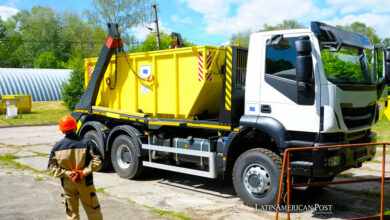How is humanity in food?
Listen this article
Currently, there are severe famines in the Middle East and Africa. Latin America presents a complicated panorama due to the Venezuelan crisis and climate change

The Global Report on Food Crises 2019, published by the Food Security Information Network (FISN), showed that in 2018, 113 million people in 53 countries are in a situation of food crisis. That is, the affected households experienced acute famine and need urgent food and other assistance for subsistence. This stage is called "crisis."
Leer en español: ¿Cómo va la humanidad en materia alimentaria?
Additionally, 143 million people in 42 countries are in a state of vulnerability. That is, the homes where the victims belong can provide themselves with a minimum level of nutrition, but they must sacrifice to the acquisition of other material goods without resorting to "atypical self-preservation strategies." This stage is called "accentuated."
According to the report, the primary causes of the famine in the world are the conflict, which has left 74 million people affected; climate change, which leaves 29 million victims; and the "economic turbulence," which affects 10 million people. Yemen, the Democratic Republic of the Congo, Afghanistan, Ethiopia, Syria, Sudan, South Sudan, and northern Nigeria are the most affected territories over the past year due to a combination of the three factors described.
By 2019, the report predicts that along with these factors, one more could worsen the situation in areas where fragile conditions for food security are present. The outbreak of diseases such as cholera and measles would prevent the already little access to health and food services in vulnerable territories.
You may be interested in reading: Glyphosate: an atrocity for Latin America
How is the food situation in Latin America?
Although almost no Latin American country appears in the report, due to the Venezuelan migratory crisis, it is possible that there are some pockets of vulnerability in the region. According to the report, Colombia – a country that has received 1.1 million migrants from Venezuela since 2014 – presents 30% of the migrant population in a situation of "crisis" and another 30% living in an "accentuated" case. This amounts to almost 600 thousand people who suffer some food security.
The Colombian government has recently relaxed its fiscal rule, that is, increased debt capacity to meet the adjusted needs of Venezuelan immigration. While regulating the migratory flow, this measure could replace the feeding of this vulnerable population.
Ecuador and Peru are also included in the report for the same reason as Colombia. The first country has received just over 100 thousand migrants, while the second has received close to 700 thousand. According to the website of Medio Gestión, Peru will regularize 300 thousand of this migrant population through the issuance of a document, which will give them a legal stay for one year. NTN24 assures that Ecuador is no longer asking for judicial past or criminal record of Venezuelan migrants to enable their entry.
On the other hand, the so-called Central American Dry Corridor – which goes, on the Pacific coast, from southern Mexico to Panama – is an area highly sensitive to climate change and, therefore, suffers from a high probability of floods and droughts. These conditions make countries such as Guatemala, Honduras, El Salvador and Nicaragua especially vulnerable to food insecurity.
All these, countries are included in the report, combining almost 16.1 million affected people. However, solutions to climate change are more complex than the challenges presented by migration. These countries need the support of the international community to curb the consequences of climate change. However, it is likely that it will take years before the effects can be reduced in this area. It is even possible that, in the future, the food-vulnerable population will have to migrate to other regions if appropriate measures are not taken to ensure their well-being.
LatinAmerican Post | Iván Parada Hernández
Translated from "¿Cómo va la humanidad en materia alimentaria?"





